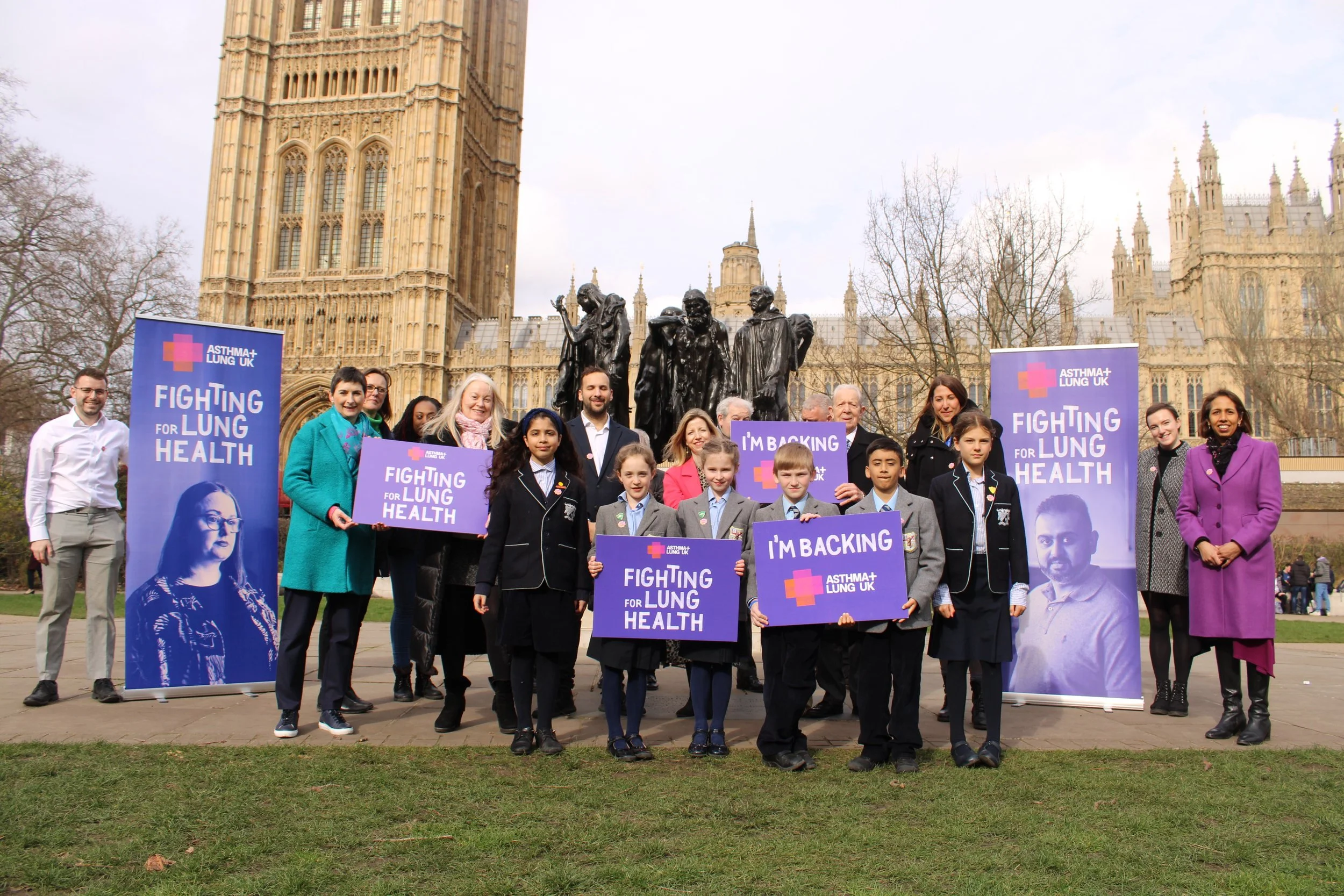Failing on the fundamentals: what our report on COPD discovered
Our new report tells a shocking story of poor care for chronic obstructive pulmonary disease (COPD) in the UK. Andrew from the policy team tells us more about what we discovered and what needs to change.
Our new report Failing on the fundamentals used data from a survey of over 8,000 people with COPD to find out new insights into living with COPD, and what care is provided for people with the condition.
Thank you to those of you who completed this survey earlier this year. Your answers have contributed to our understanding of COPD, and have informed this report and our campaigning. This was our first time doing a survey this large of people with COPD, so without other years of data to compare to, the results were a shock to us.
Care levels aren’t being met
We wanted to know about what care people with COPD received, and whether they were getting the best care to help them manage their symptoms. We found that over three quarters (75.5%) of respondents did not receive the recommended five fundamentals of COPD care - a key measure of routine COPD care. This includes things like being offered support to stop smoking, getting a flu jab and having a self-management plan in place. This is a big failing, and this will be an important measure to track in future editions of this survey.
If you want to know if you are getting the care you need for your COPD, complete the BLF Patient Passport. It produces a report that you can discuss with your doctor or nurse.
Diagnosis is difficult
We also found that getting a COPD diagnosis – and getting on the right treatments quicker – was often a difficult and drawn-out experience. When people first went to their GP with breathlessness, they experienced problems getting a diagnosis, with 14% of respondents reporting an initial misdiagnosis, and 22% having their symptoms mistaken for a chest infection or cough.
We also found that many key diagnostic tests (such as spirometry) were not always taking place. Once they got a diagnosis, 61% of respondents did not feel that they had enough support and knowledge to manage their newly-diagnosed COPD.
Receiving a diagnosis can be a very difficult time for someone with COPD, as well as a crucial opportunity to help them better manage their condition, and it is unacceptable that so many people are currently being let down at this stage.
Impact of living with COPD can be tough
Our survey showed that COPD can have a devastating impact on people’s work (with an estimated 420,000 having to end their careers early because of it), and can take away enjoyable aspects of life too, such as social time with friends and family, and going on holiday.
Sadly, COPD is a condition that is largely misunderstood by the general public. Nearly half (46.3%) of respondents thought that people thought badly of them because they had COPD, while 27.9% told us they had faced direct discrimination since they were diagnosed.
This shows how far we still have to go to shift perceptions of living with COPD among the media and wider society, and we will be working hard to change this.
What we’re doing with the report
This survey has given us incredibly valuable new insights into living with COPD, and we will use this data to strengthen our campaigning for better diagnosis and care, and increase understanding of the impact that COPD has on those who live with it.
It is essential that we see a change in COPD care, and how COPD is perceived by wider society. We’re always working to make sure that everybody with is given the care they deserve and the information they need.
Want to discover more about COPD?
Find out more about COPD, what it is and how we support people with this condition. We have a range of resource to help you find out more about COPD on our World COPD day page.
We empower people with lung conditions to make changes that can be transformative.
Please donate now to help make sure people with lung conditions can live well this year.








Chloe was diagnosed with asthma as a child. As she got older, her symptoms had completely disappeared. But when she started university, this changed. Here she tells us how getting active has helped her manage her asthma - and changed her life.